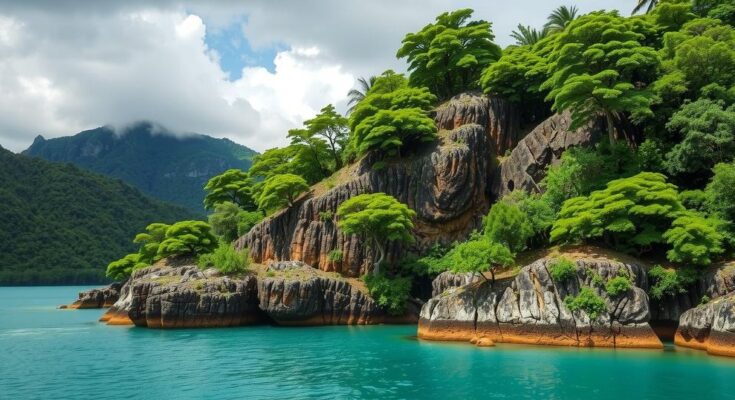Papua New Guinea’s Prime Minister James Marape announced plans to return to UN climate talks with a focus on forest conservation after boycotting recent discussions deemed ineffective. He emphasized the need for high-emission countries to contribute to forest conservation efforts. PNG, rich in rainforests, is advocating for significant attention to climate-related forestry issues in upcoming negotiations, especially COP30 in Brazil.
Papua New Guinea’s Prime Minister, James Marape, has announced the country’s intention to return to the United Nations climate negotiations after boycotting the recent conference in Azerbaijan, which he criticized as ineffective. With an emphasis on forest conservation, he is advocating for a more significant focus on environmental sustainability at future summits, particularly the upcoming COP30 in Brazil, known for its pivotal Amazon rainforest. Marape highlighted the vital role of forestry in combating climate change, stating, “It is the forestry that clears the atmosphere of carbon and carbon footprints.” Furthermore, he expressed support for an Australian bid to co-host COP31 in 2026, given that discussions prioritize forest management. Papua New Guinea, with its rich forest resources, is highly vulnerable to climate change effects and aims to ensure that its ecological interests are duly recognized on the global stage.
The archipelago nation boasts the third-largest rainforest in the world, often referred to as the “lungs of the Earth” due to its extensive carbon-absorbing capabilities. This year’s absence from the UN talks stemmed from the nation’s discontent over the lack of regard shown by host nations towards forest industry stakeholders. Amidst growing environmental challenges, Papua New Guinea’s advocacy for forest conservation is intensifying, recognizing the essential relationship between forestry and climate change mitigation. Marape’s commitment to push for accountability from high-emission countries reflects a broader call for equitable action to preserve vital ecosystems.
Given its unique biodiversity and extensive forest resources, Papua New Guinea holds a significant presence in global climate discussions. As one of the Pacific Islands, it faces substantial risks from climate change, including extreme weather, rising sea levels, and economic vulnerabilities. The country’s forests play a critical role in carbon sequestration, positioning them as essential in combating climate change. The journey towards acknowledging and integrating forest conservation into international climate agreements has seen challenges, particularly regarding the perceptions and respect given to eco-centric industries by global powers. As the world grapples with these climate crises, PNG’s call for ensuring forests are prioritized in discussions is urgent and crucial.
Papua New Guinea’s commitment to returning to United Nations climate talks stems from its desire to emphasize forest conservation as a critical element of global climate negotiations. Prime Minister James Marape’s statements underscore the need for accountability from economically developed nations and highlight the importance of forestry in maintaining ecological balance. With an initiative to influence future summits significantly, Papua New Guinea aims to become a vocal advocate for the preservation of its forests and the planet’s ecological health.
Original Source: www.ndtv.com




